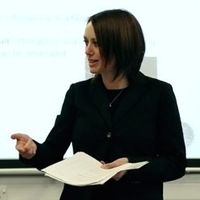#TE-04-26 Feedback for Learning: Implementing Formative Assessment
About Course
National STEM Learning CentreDescription
Help your students benefit from formative feedback
Marking has been identified as an area of excessive workload for teachers, but feedback is crucial for students to improve their understanding.
On this course, you’ll learn evidence-based approaches for using written and oral feedback to support student learning, without increasing your workload.
You’ll learn how to develop a classroom culture that encourages formative dialogue and prepares students to receive, act upon, and learn from teacher feedback.
The course adopts a reflective approach and will encourage changes in classroom practice that will have a direct impact on student learning.
Who will you learn with?
Former physics teacher & leader, now supporting educators to develop teaching. Commissioned by National STEM Learning Centre to work with Dylan Wiliam & Chris Harrison to design & support AfL courses.
Who developed the course?
The National STEM Learning Centre provides world-class professional development activities and resources to support the teaching of STEM (science, technology, engineering and mathematics) subjects.
What Will I Learn?
- Apply approaches that use students’ errors to maximise learning as part of classroom culture.
- Identify different types of feedback interaction within your teaching.
- Develop a range of strategies to involve students in oral and written feedback.
- Develop a formative classroom culture that prepares students to be responsive to feedback.
Topics for this course
What is feedback for learning?
What is feedback for learning?00:01:33
How would you define feedback?00:01:02
What is the relationship between feedback and learning?00:01:39
Judgements, evaluations, feedback: what’s the difference?
Draft Lesson
Feedback dimensions
Creating a feedback culture
I learned more than I thought I would and definitely recommend this course to others!
Great course and great deal really enjoyed the course
Nice course.
I had a great learning experience. For many, feedback is usually rituaistic judgement and remedial suggestions, without ensuring that suggestions are executed. The course not only theorises, but provides tools for effective feedback exercise. Every teacher should explore this course.
Enjoyed the course as the content was appropriate for teachers /educators across a wide range of contexts and sites. The course was both challenging and thought provoking, supporting participants to really think about how they understand feedback and the ways they use it with their students.
The course gave me a new perspective about feedback and the elements that are linked to it. Students and teachers play and importante role só that the feedback night be effective.
Straightforward and very instructive input with loads of opportunities to interact with other course mates. I really enjoyed the drip drop of the tutor comments as they added further information to the content.




